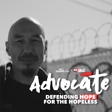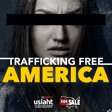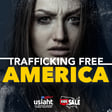
How an 11 year-old girl was trafficked: The Story of Oree Freeman, PART 1 | S6, E7
🎧 How an 11 year-old girl was trafficked: The Story of Oree Freeman, PART 1 | Trafficking Free America Podcast (2023) Welcome to this Season 1 re-run of the Trafficking Free America podcast, brought to you by the U.S. Institute Against Human Trafficking (USIAHT). In this gripping episode, we share the courageous story of Oree Freeman, a survivor, educator, and now the Director of Operations for USIAHT, the very organization behind this podcast series. Oree’s journey is raw, heartbreaking, and full of resilience. From growing up in a vulnerable environment, to experiencing repeated abuse and trafficking, to becoming a national voice in the fight to end human trafficking—her story is a must-hear for anyone who wants to understand what trafficking really looks like in America.
🕒 Timestamps:
00:00 – Introduction to the podcast and USIAHT’s mission
01:31 – Meet Oree Freeman: survivor, advocate, abolitionist
02:23 – Breaking trafficking myths: It’s not just kidnappings and basements
04:00 – Oree’s sheltered childhood and early family dynamics
07:02 – First memory of sexual abuse at age five
08:24 – Identity crisis, bullying, and emotional neglect
11:09 – Molestation by a family friend becomes normalized
13:26 – Rape at summer camp and first thoughts of running away
17:21 – Trauma triggers resurface in adulthood after childbirth
19:03 – Discovering she was adopted and losing her sense of identity
27:13 – Arrest, probation, and entering alternative education programs
32:37 – Running away and being taken to a trafficker’s house
💡 Become a Certified Trafficking Free Zone Member: Take our free online course and join the movement: 👉 https://www.usiaht.org/trafficking-free-zone
🔔 Like, comment, and subscribe to support our mission to end human trafficking.
📢 Connect with USIAHT and become an Abolitionist! Website: https://www.usiaht.org/abolitionists
Social Media: @usiaht (Instagram, Facebook, Twitter)
#TraffickingFreeAmerica #OreeFreeman #HumanTraffickingAwareness #USIAHT #SurvivorStory #EndHumanTrafficking #Podcast #TraffickingFreeZone #SocialJustice #SurvivorVoices

![The Best Ways to Support a Safe Home [REPLAY] | Safe Home Series, Part 4 image](https://media.zencastr.com/cdn-cgi/image/width=112,quality=85/image-files/640a1493181f834e694b13d6/20777798-06ea-438b-8fe4-26e91f8b685e.png)

